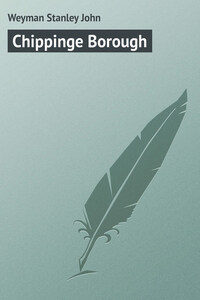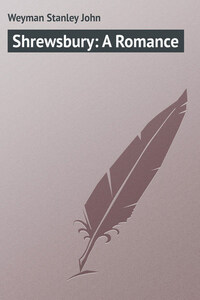Boom!
It was April 22, 1831, and a young man was walking down Whitehall in the direction of Parliament Street. He wore shepherd's plaid trousers and the swallow-tail coat of the day, with a figured muslin cravat wound about his wide-spread collar. He halted opposite the Privy Gardens, and, with his face turned skywards, listened until the sound of the Tower guns smote again on the ear and dispelled his doubts. To the experienced, his outward man, neat and modestly prosperous, denoted a young barrister of promise or a Treasury clerk. His figure was good, he was above the middle height, and he carried himself with an easy independence. He seemed to be one who both held a fair opinion of himself and knew how to impress that opinion on his fellows; yet was not incapable of deference where deference was plainly due. He was neither ugly nor handsome, neither slovenly nor a petit-maître; indeed, it was doubtful if he had ever seen the inside of Almack's. But his features were strong and intellectual, and the keen grey eyes which looked so boldly on the world could express both humour and good humour. In a word, this young man was one upon whom women, even great ladies, were likely to look with pleasure, and one woman-but he had not yet met her-with tenderness.
Boom!
He was only one among a dozen, who within the space of a few yards had been brought to a stand by the sound; who knew what the salute meant, and in their various ways were moved by it. The rumour which had flown through the town in the morning that the King was about to dissolve his six-months-old Parliament was true, then! so true that already in the clubs, from Boodle's to Brooks's, men were sending off despatches, while the long arms of the semaphore were carrying the news to the Continent. Persons began to run by Vaughan-the young man's name was Arthur Vaughan; and behind him the street was filling with a multitude hastening to see the sight, or so much of it as the vulgar might see. Some ran towards Westminster without disguise. Some, of a higher station, walked as fast as dignity and their strapped trousers permitted; while others again, who thought themselves wiser than their neighbours, made quickly for Downing Street and the different openings which led into St. James's Park, in the hope of catching a glimpse of the procession before the crowd about the Houses engulfed it.
Nine out of ten, as they ran or walked-nay, it might be said more truly, ninety-nine out of a hundred-evinced a joy quite out of the common, and such as no political event of these days produces. One cried, "Hip! Hip! Hip!"; one flung up his cap; one swore gaily. Strangers told one another that it was a good thing, bravely done! And while the whole of that part of the town seemed to be moving towards the Houses, the guns boomed on, proclaiming to all the world that the unexpected had happened; that the Parliament which had passed the People's Bill by one-a miserable one in the largest House which had ever voted-and having done that, had shelved it by some shift, some subterfuge, was meeting the fate which it deserved.
No man, be it noted, called the measure the Reform Bill, or anything but the Bill, or, affectionately, the People's Bill. But they called it that repeatedly, and in their enthusiasm, exulted in the fall of its enemies as in a personal gain. And though here and there amid the general turmoil a man of mature age stood aside and scowled on the crowd as it swept vociferating by him, such men were but as straws in a backwater of the stream-powerless to arrest the current, and liable at any moment to be swept within its influence.
That generation had seen many a coach start laurel-clad from St. Martin's and listened many a time to the salvoes that told of victories in France or Flanders. But it was no exaggeration to say that even Waterloo had not flung abroad more general joy, nor sown the dingy streets with brighter faces, than this civil gain. For now-now, surely-the People's Bill would pass, and the people be truly represented in Parliament! Now, for certain, the Bill's ill-wishers would get a fall! And if every man-about which some doubts were whispered even in the public-houses-did not get a vote which he could sell for a handful of gold, as his betters had sold their votes time out of mind, at least there would be beef and beer for all! Or, if not that, something indefinite, but vastly pleasant. Few, indeed, knew precisely what they wished and what they were going to gain, but
Hurrah for Mr. Brougham!
Hurrah for Gaffer Grey!
Hurrah for Lord John!
Hurrah, in a word, for the Ministry, hurrah for the Whigs! And above all, three cheers for the King, who had stood by Lord Grey and dissolved this niggling, hypocritical Parliament of landowners.
Meanwhile the young man who has been described resumed his course; but slowly, and without betraying by any marked sign that he shared the general feeling. Still, he walked with his head a little higher than before; he seemed to sniff the battle; and there was a light in his eyes as if he saw a wider arena before him. "It is true, then," he muttered. "And for to-day I shall have my errand for my pains. He will have other fish to fry, and will not see me. But what of that! Another day will do as well."














